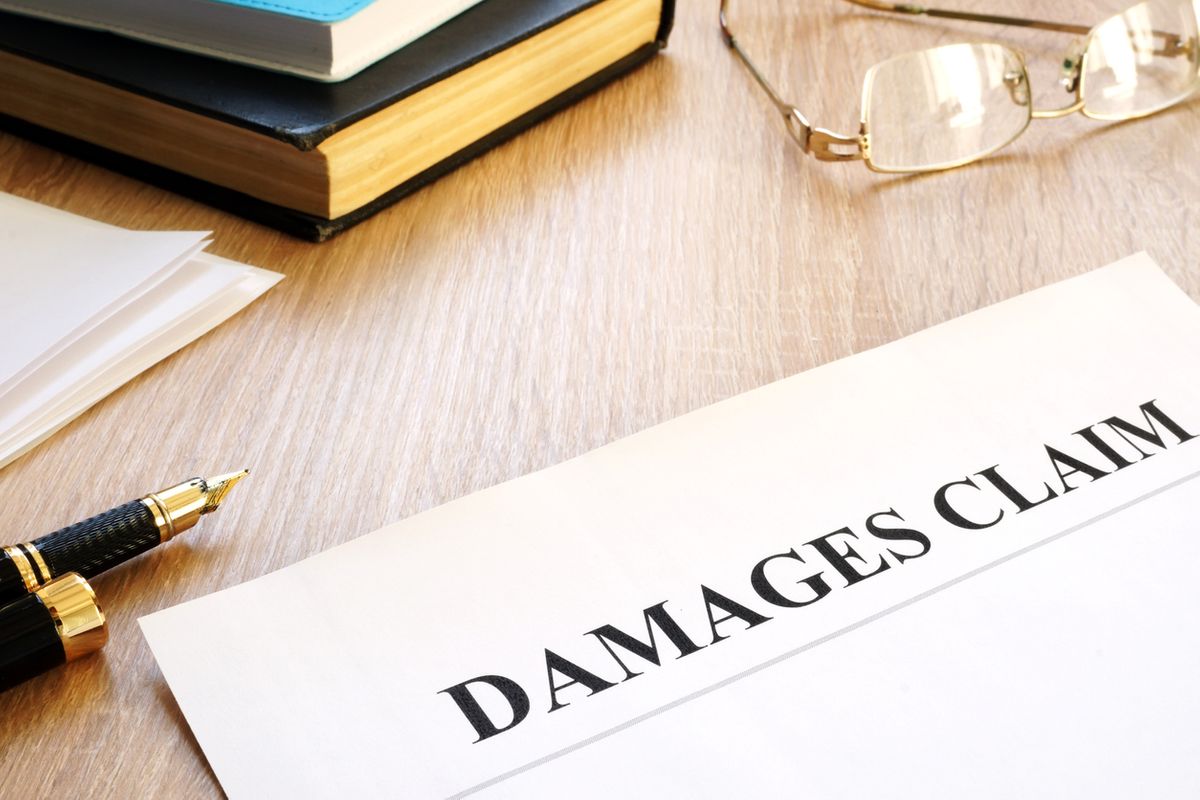If you are in the process of filing a personal injury claim, whether due to injuries sustained in a car accident or after a slip and fall, you may find yourself wondering what your case may be worth. Before you are able to receive compensation for your injuries, you must be able to prove that another party's negligence resulted in your injuries. If you prevail in proving another person's negligence, you will likely be entitled to recover damages for your injuries and losses sustained during the accident.
The precise amount of damages you will be awarded for your injuries will depend on a number of factors. There are several types of damages a claimant can be awarded in a personal injury case, and the types of damages you may be entitled to will depend on the circumstances of your accident. Keep reading to learn more about the types of damages you may be able to recover in a personal injury case.
Monetary Damages
Most damages awarded in a personal injury case are monetary, meaning that they are meant to compensate victims for financial losses associated with their accident and the injuries they sustained. Monetary damages that you may be awarded for your injuries can include those compensating you for:
Medical Bills
The most common type of monetary damages awarded in a personal injury case are those compensating you for medical expenses associated with the accident. This includes reimbursement for treatments that you've already received as well as compensation for the estimated cost of medical care that you will need in the future as a result of your injuries.
Costs of Living With a Disability
A serious accident may leave a victim with a permanent disability as a result of their injuries. In this case, compensatory damages may be awarded to cover the costs associated with living with a disability such as the costs of renovations to the victim's house to make it accessible, the cost of in-home nursing care, etc.
Lost Wages
Depending on the severity of your injuries and your line of work, your accident may leave you unable to work for a period of days, weeks, or even months. Monetary damages can allow a victim to recover wages lost while recovering from their injuries, allowing them to focus on the healing process. In the event that a victim suffers significant injuries that affect their ability to work in the future, they may also be entitled to compensation for lost earning capacity as well.
Repair/Replacement of Personal Property
If you were injured in a car accident, the negligent party will likely also be responsible for the cost of repairing your vehicle, or the replacement of your vehicle if it is totaled. You may also be entitled to compensation for the replacement of any other personal property that was damaged or destroyed in the accident such as your clothes or cell phone. Your attorney can help you to determine the total value of the property that you lost as a result of the accident.
General Damages
You may also be awarded general damages (also called non-monetary damages) for losses that aren't quantifiable. General damages that you may be awarded following your accident include those compensating you for:
Pain and Suffering
You may be entitled to compensation for the pain and suffering you experienced during the accident and its immediate aftermath. This includes compensation for actual physical pain as well as emotional distress, which can range from depression and anxiety to PTSD resulting from your accident.
Emotional Distress
Serious accidents may result in victims suffering from severe emotional distress. In such cases, you may be entitled to compensation for the psychological impact of your injuries. If you have experienced fear, anxiety, or insomnia as a result of your accident, this is something you should discuss with your attorney, as you may be entitled to compensation for your distress.
Loss of Enjoyment
When injuries caused by an accident keep you from enjoying day-to-day activities like hobbies, exercise, or even playing games with your children, you may be entitled to "loss of enjoyment" damages.
Loss of Consortium
Depending on the severity of your injuries and the impact they have on your daily life, your spouse may be entitled to compensation for loss of companionship or the inability to maintain a sexual relationship.
Punitive Damages
In addition to compensatory damages that you may be awarded for losses associated with your accident, some states also allow personal injury claimants to pursue punitive damages as well. Unlike compensatory damages, punitive damages are not designed to compensate the victim for their injuries. Instead, punitive damages are awarded to punish the defendant for their negligent behavior. This is meant to not only reduce the likelihood that the guilty party will make the same mistake again, but it is also meant to make an example of the defendant to deter others from behaving in a similar manner.
Punitive damages are typically awarded when the defendant's actions are particularly egregious, such as in cases of malicious behavior or gross negligence. It is important to note that not all personal injury cases will result in punitive damages being awarded, and most states have a cap on the punitive damages a defendant can be charged with paying.
Consult an Experienced Personal Injury Attorney
Being aware of the types of damages a victim can be awarded in a personal injury case is important, as this can help ensure that you receive compensation for all of the damages you are entitled to after an accident. However, figuring out exactly which damages you may be entitled to, how much your case is worth, and proving this in court can be extremely complicated. This is why it is important that you contact an experienced attorney if you are considering filing a personal injury claim. An attorney can evaluate your case and work to ensure that you receive the proper compensation you deserve.
Feel free to contact us to learn more about the importance of working with an attorney when filing a personal injury claim.

